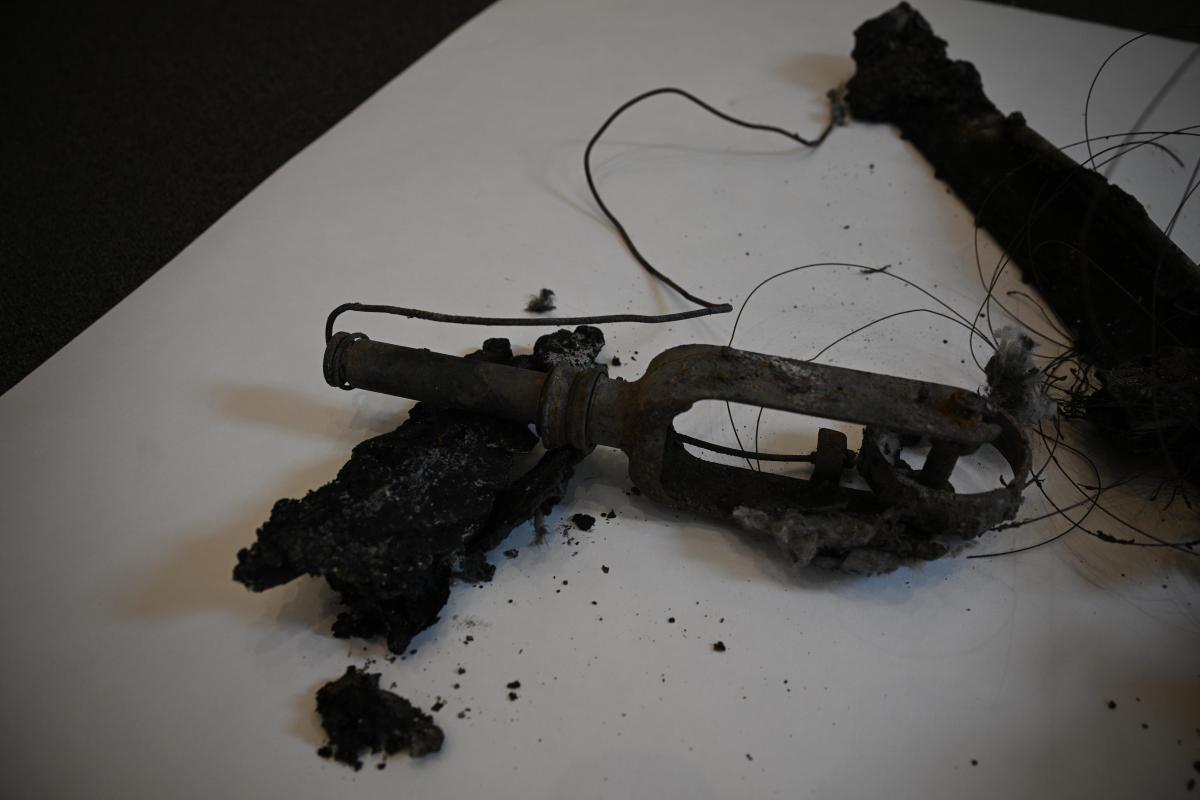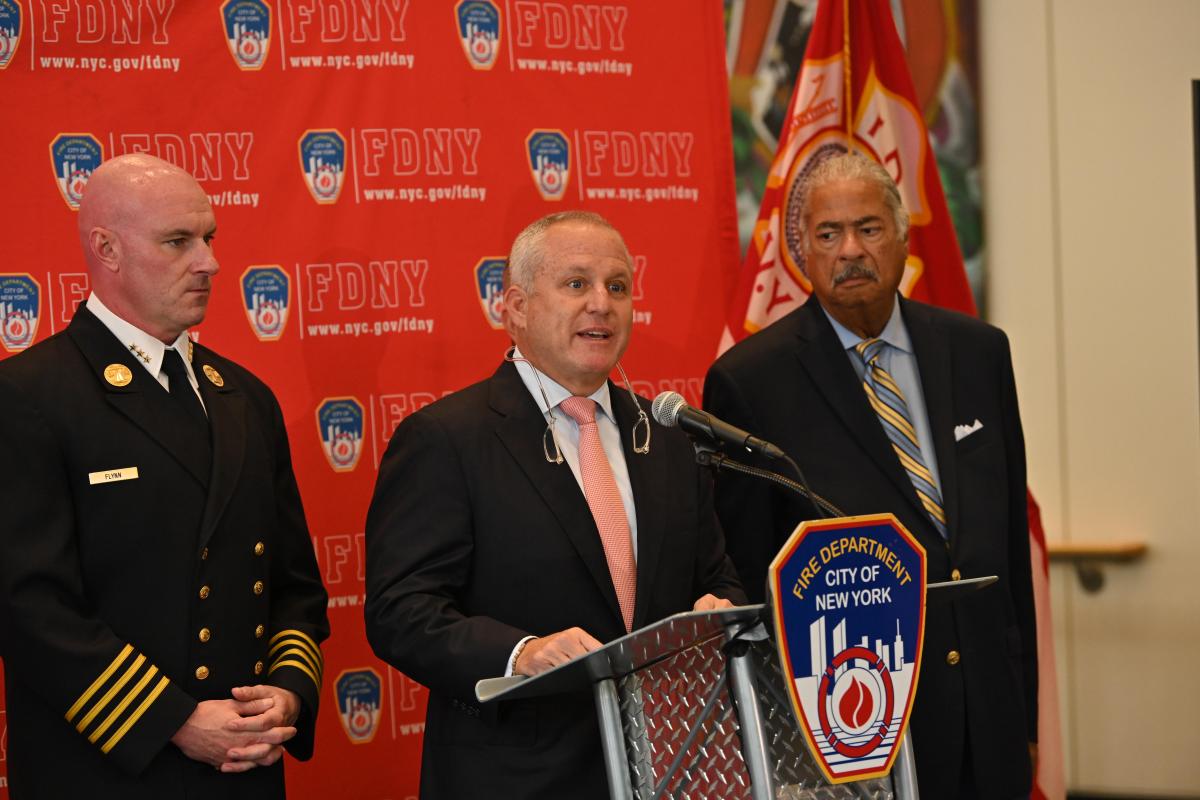Faulty lithium-ion batteries remain the biggest arsonists in New York City — responsible for at least two more serious fires in the five boroughs this past week.
The Fire Department has dealt with more than 170 fires so far in 2024 linked to lithium-ion batteries that suffered catastrophic malfunctions — including batteries that were not charging at the time. Three people have died, and 59 people have been injured in these blazes.
The most recent serious fire triggered by a faulty battery occurred at 2411 Dean St. in Brooklyn on Aug. 26. Flames rapidly spread through the apartment building and grew into a four-alarm inferno that engulfed four other adjacent dwellings, injured three firefighters and six civilians, and displaced dozens of residents.
At an Aug. 29 press conference at its MetroTech headquarters in Downtown Brooklyn, the Fire Department put on display the charred remains of a lithium-ion battery and e-bike that, they believe, sparked the horrific fire.

Lithium-ion batteries — which contain highly flammable chemicals that rapidly spread fire when ignited — were also blamed for a massive barge fire on Newtown Creek in Long Island City on Aug. 28. The FDNY Marine Unit spent hours knocking back the flames and bringing the tempest under control.
“These bike fires are taxing our units,” said Fire Commissioner Robert Tucker. “For more than three years, the fearless firefighters, EMTs and paramedics of this department have been on the front lines responding to the dangers of lof fires and have saved countless lives. I commend them for that, and it is not taken for granted.”
As the number of battery-related fires has grown in recent years, the city has taken various actions to educate the public about the danger and keep used or damaged batteries out of circulation.
The City Council approved last year a trade-in program to allow e-bike users to exchange used or damaged batteries in for fresh, safe devices. The Department of Transportation also seeks to expedite the creation of e-bike charging facilities on sidewalks to discourage users from bringing the vehicles (and charging their batteries) inside.

The Fire Department also stepped up its enforcement efforts targeting businesses that misuse or mishandle lithium-ion batteries, making the first arrest back in April of a business owner caught improperly storing dozens of batteries. New York’s Bravest has also invested $1 million in an ad campaign reminding New Yorkers of the batteries’ danger, and how to safeguard against fires.
The FDNY urges New Yorkers who use e-bikes to follow all manufacturer instructions and avoid purchasing any batteries without UL stickers. Avoid charging devices and batteries near doors, windows and other points of egress near your home. Wherever possible, charge the devices outside.
“One life lost is too many, and we’ll need to strive to keep our friends and neighbors safe,” Tucker added. “We are all in this together. This is an issue that is not going away. We know micromobility devices are here to stay, and a big part of our future. By combining education, regulation, training and advocacy, we’re taking steps to protect our city and ensure the safety of all New Yorkers.”
More information on proper lithium-ion battery storage and charging can be found at nyc.gov/fdny.
